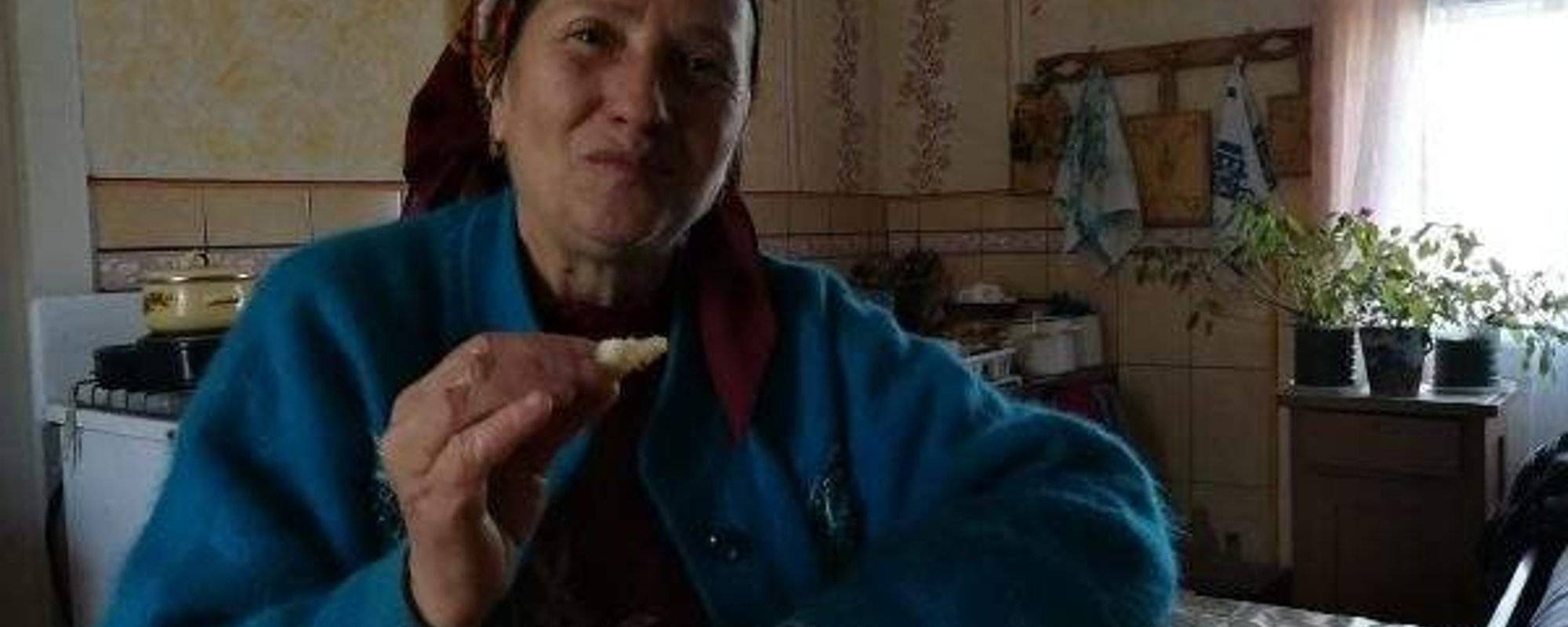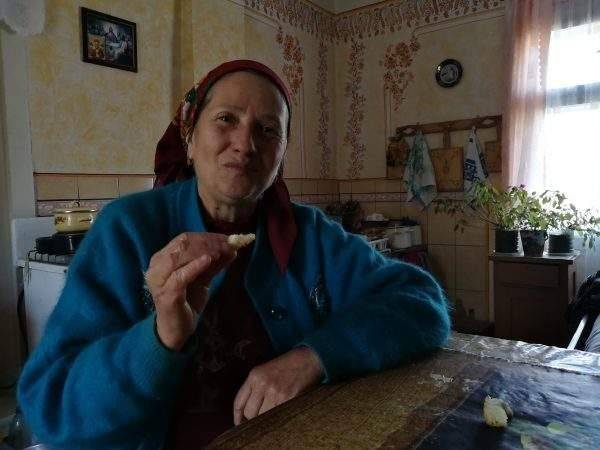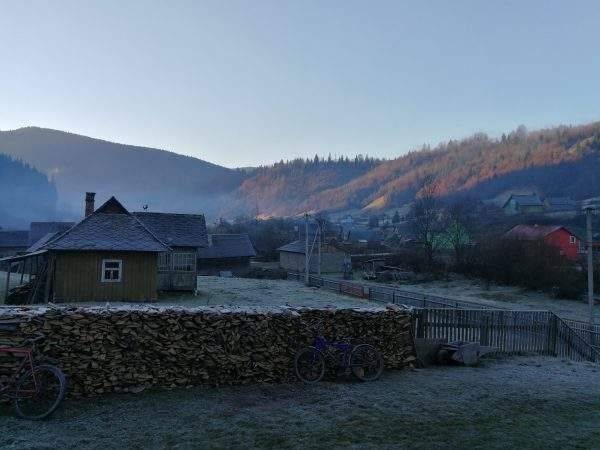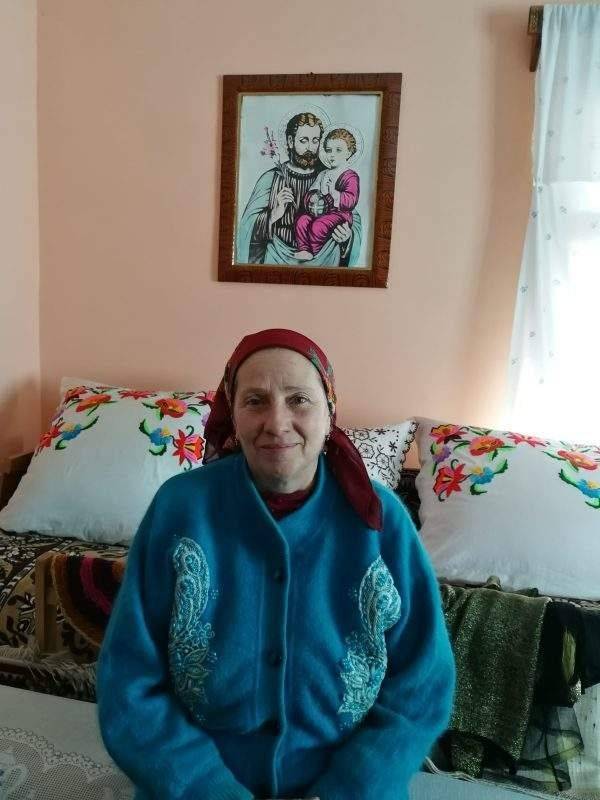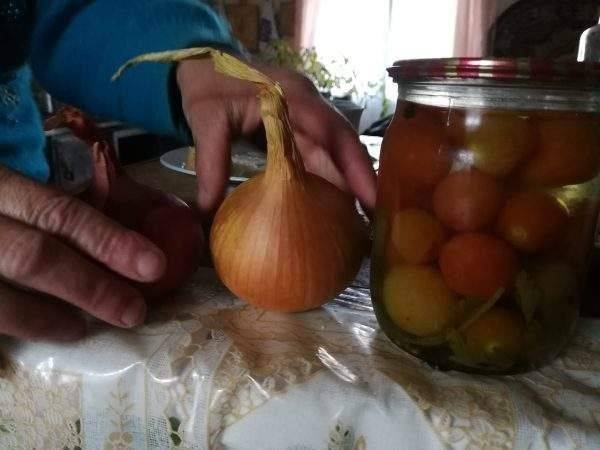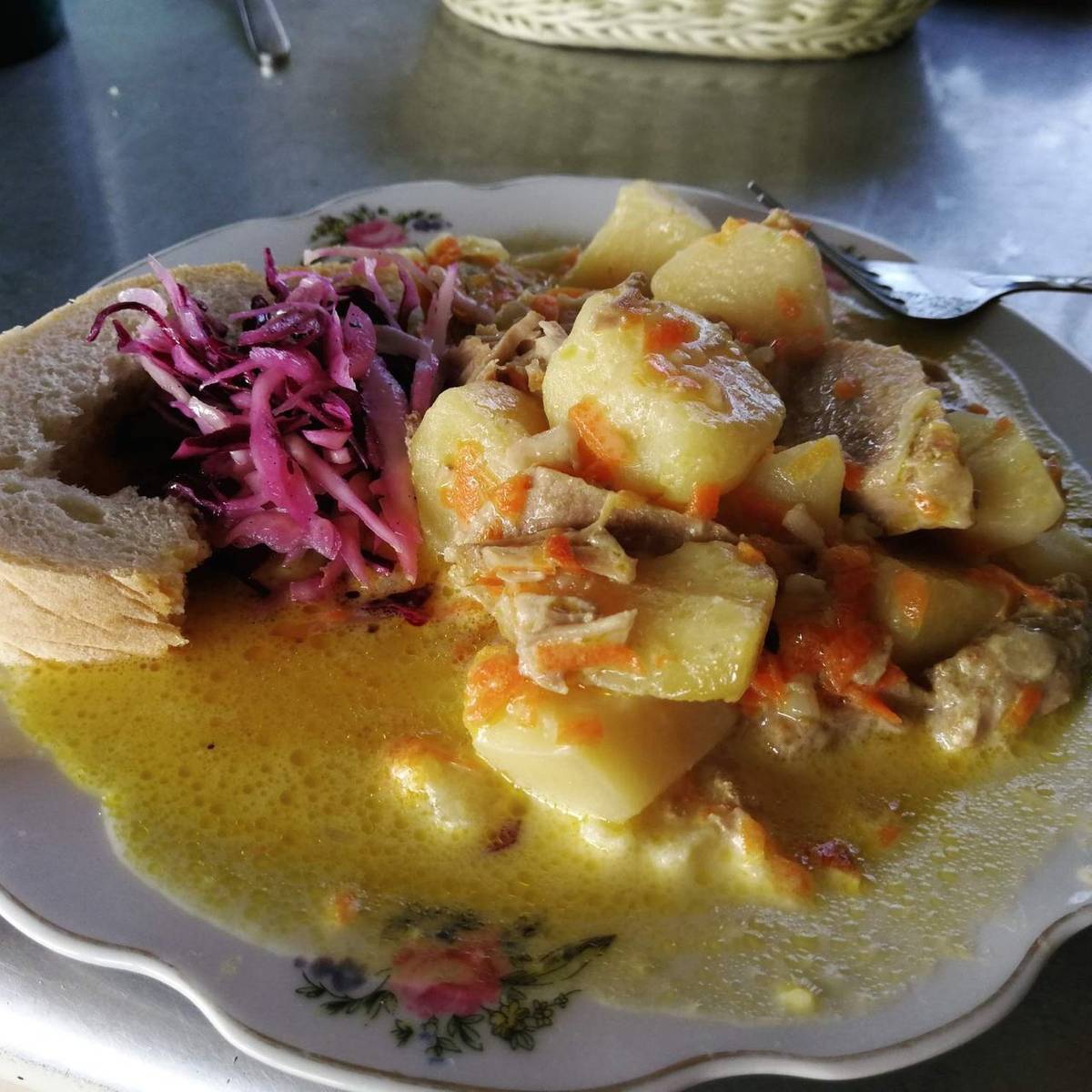There was one more thing that happened on my way to Rachiv. It was just a long straight road, 10 miles along the valley bottom towards the town where I was going to take a weeks rest. Ten miles more and I could stop walking. I couldn’t wait, I felt very ready for a rest. My feet were hurting that morning, the tendons. All the weeks of walking had led to this point, the gradual creeping tension of muscles that never quite had time to relax before another day’s strain was put upon them. Then the climbing of the mountain and the 18 mile race to the bottom had added that little bit extra that was pushing me into injury territory. I was ready, I was ready to stop.
I imagined my hostel there ahead of me, the food I would buy, the protein I would eat, the daily showers, the quiet space I would find to practice daily yoga. But first there was the long straight road and the houses along it, it was mostly one village bleeding into another, houses scattered high up on the hillsides. Logging lorries came and went, cars passed me, horses with rackety carts following behind on fat tyres, people on single gear bicycles. I walked and I smiled and I said hello, ‘dobre den’.
I passed a house and someone called to me, a woman saying ‘come inside, would you like coffee?’ Sure, and I traipsed inside, a fat waggy dog blocking the gate from opening in his eagerness to greet me. It was an older woman in a headscarf and cardigan, grey skirt and boots. She chattered at me, I quickly realised that this was a woman who didn’t draw breath to interrupt her flow of words.
I was just going to have to experience this, not intervene to direct the conversation but just sit back and see what happened here. Inside the house was the same as Luda’s but slightly richer.
In the main room was a huge double bed with ornate, embroidered pillows, then a kitchen table, cupboards, a wardrobe and a wood stove. The front room was unused and kept for best, and also for storage, there were boxes of bottled preserves on the floor, a tray of eggs on the table. She was Maria and she asked me very little about what I was doing, or who I was at all, just told me that I must try salo – preserved pig fat. That this was the best thing to eat every day, salo and raw garlic and bread.
Maria went into her pantry and brought out the garlic, chopped it roughly with her worn knife, the blade shrunken from years of sharpening, all the time talking non-stop about how good this was for you. ‘Product natural’ she said, pointing in the air ‘bez chimie, bez magasin!’ ‘no chemicals, no shops!’ She gestured to her face, told me how young she looked and it was all because of her diet, she was 62 she told me, a pensioner, and look at how good her skin was. She grew all her own vegetables. The salo was from the next door neighbour, as was the smetana (sour cream), she brought out a jar of it and encouraged me to eat it with a spoon. A saucepan of water bubbled on the stove, ignored. The bread was made in the village and it was wood fired, she made sure to emphasise ‘bez electric!’.
Maria had worked for many years in the Czech Republic, in a factory, only coming home when her mother took ill and died, a few years ago. She didn’t have a husband and she didn’t have children, just a sister who didn’t live locally.
I was absolutely loving this rush of energy, the passion of this woman, pouring out her information to me. I asked if I could get my camera out, take a photo of the plate of salo and she thought I was asking for a photo of her. Without even pausing to consider it she went to the cupboard and brought out her best clothes, a blue mohair cardigan embroidered with pearlescent beads, from Poland she told me, then a different headscarf, one of the ones for best.
She opened up the door to the front room and told me that she would pose for a photo in front of the religious painting on the wall, straightening the sofa cushions and telling me to only photograph her from the waist up because her skirt was not smart enough. It was completely lovely, and I managed to take a more candid photo moments later to complement it. I’m normally too shy to ask for photos, they never come out the way I want them to, becoming awkward and posed rather than the candid pictures I love so much.
Maria’s neighbour came in, just as Maria was getting the homemade schnapps out, ‘bez chimie!’. I accepted a shot and so did she, we all drank together and Maria served coffee. The neighbour had a twinkle in her eye and we shared a little smile together as Maria told us about her clothing, that it came to her secondhand and that the boots didn’t fit properly because she had a bunion, she pulled the boot off to show us. The neighbour, whose name I can’t remember, asked me about myself so I could tell her I was walking and that I’d come from Kiev.
Maria started saying that she’d seen me walking past and had invited me in because I was alone and she was alone and suddenly her eyes were full of tears and her voice broke and she was crying. I realised that this woman was probably labelled as ‘too much’, that she spent her life all by herself and no-one was there to love her, to hold her in their cupped hands and catch the overflowing of her passionate heart.
I gently extricated myself, I’d been there more than an hour and it was time to move on, Maria gave me two onions and a jar of preserved tomatoes ‘product natural!’. I got her to write down her address in curling Cyrillic, thinking that I will send her postcards from along my journey. We hugged and kissed goodbye, the dog rolling at our feet, begging for love, and I left, I walked away, enriched by her, thankful for that hour together.
It was the final few miles to the hostel, and the journey seemed endless, at every curve I looked ahead to see if I was finally at the place where the two rivers joined, where my small valley met the larger one of Rachiv town. My head was swimming with all I’d experienced (and the 6 shots before 11am); the mountain, the bears, the frost, the views, Luda, Maria. It was time to pause, time to rest my body, it was time to stop.
